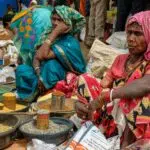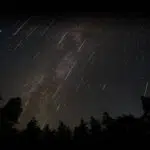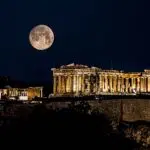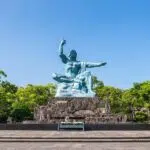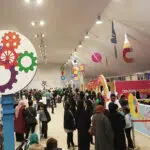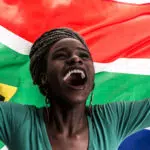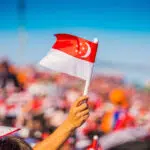Suriname Indigenous People’s Day is annually observed on August 9. It’s a public holiday coinciding with the U.N.’s International Day of the World’s Indigenous Peoples. The holiday celebrates indigenous people, who are the soul of Suriname, and their identity. It remembers the centuries of oppression, slavery, and forced assimilation the indigenous people went through and aims to make things right.
History of Suriname Indigenous People's Day
Indigenous peoples, particularly the Arawak and Carib, have inhabited Suriname for millennia. Among the first inhabitants were the Surinen people, from whom the country gets its name. But by the 17th century, the ethnic composition of the country changed drastically because of European settlers. British plantation owners and their slaves arrived on the shores of Suriname in 1651. Sixteen years later, a Dutch fleet landed and captured Suriname, kickstarting centuries of colonization.
Many indigenous people died or became enslaved during the invasion. Those lucky enough to escape with their lives took refuge in the rainforests. As the Dutch continued transporting thousands of Africans to Suriname, some of them escaped and hid in the interiors of the country — runaways who came to be known as “Maroons.” These runaways were taken in by the leftover Indigenous tribes, who constantly went to war with the Dutch. After several failed attempts to fight the tribal groups, the Dutch ultimately conceded to peaceful co-existence.
Today, Suriname’s indigenous population comprises a mix of the island’s main tribal groups and descendants of the “Maroons.” Most of them live in the southeastern and coastal regions of the country. In contrast, indigenous people only make up 4% of Suriname’s population, but their contributions to Suriname’s freedom will never be forgotten, which is what most Surinamese people thought. As a result, Suriname decided to honor its First Peoples on August 9, coinciding with the International Day of the World’s Indigenous Peoples. Suriname Indigenous People’s Day hopes to continue protecting and advocating for indigenous rights.
Suriname Indigenous People's Day timeline
Suriname’s indigenous people fiercely resist settlement by the Spanish, British, Dutch, and French.
The Dutch enslave Suriname’s indigenous population and put them to work in plantations alongside Africans.
The Tucayana Amazons take offense at the Treaty of Kourou that favors Maroon rights over indigenous peoples’ rights, causing infighting.
Indigenous leadership and knowledge lead the way in Suriname becoming one of the world’s three carbon-negative countries.
Suriname Indigenous People's Day FAQs
What are the indigenous people of Suriname called?
Suriname has several indigenous groups, such as the Lokono, the Trio, the Kaliña, and the Wayana.
What is Indigenous Peoples' Day, and why is it celebrated?
Indigenous Peoples’ Day honors the life, history, and culture of indigenous peoples. It was first celebrated during a U.N. conference in 1977.
Are Maroon people indigenous?
The “Maroons” in Suriname are not indigenous people, although they enjoy similar rights. The primary difference is that Maroons cannot claim aboriginal status and subsequent rights.
How to Observe Suriname Indigenous People's Day
Share their stories
The world needs to know the stories of the indigenous people who fought for Suriname. Share information about Suriname’s indigenous people with friends, co-workers, and family on the holiday.
Support indigenous organizations
Make a difference from where you are. Buy from indigenous-owned businesses or donate to charities.
Experience the culture
From music and dance to sampling the cuisine, Suriname Indigenous People’s Day is excellent for experiencing new things. In Suriname, you can sample some great food at several village cookouts that pop up on the holiday.
5 Facts About Paramaribo That Will Blow Your Mind
There are no dry spells
Paramaribo, the Surinamese capital, has a tropical climate all year round, with an average of 60mm of rainfall each month.
It’s a UNESCO World Heritage Site
Paramaribo’s inner city has Dutch architectural influences and is a UNESCO World Heritage Site.
It has odd marriage laws
Anyone under 30 requires their parents’ written consent before getting married.
Its official language is not English
Paramaribo’s official language is Dutch.
It hasn’t changed for centuries
The city’s urban fabric, infrastructure, and buildings have remained the same since the 17th century.
Why Suriname Indigenous People's Day is Important
It’s a chance to make amends
The holiday seeks to remember the contributions of indigenous people to Suriname. It gives us a chance to make amends and helps shine a light on the people without whom Suriname wouldn’t be what it is today.
It celebrates heritage
Indigenous participation in public life is minimal to none in Suriname. The holiday is critical to ensuring indigenous cultures become recognized and live on.
It preserves cultural integrity
The essence of Suriname will cease to exist without its First People. It would be a country bereft of spirit. So, Suriname Indigenous People’s Day seeks to recognize the significance of the indigenous people to the country and help people learn their value.
Suriname Indigenous People's Day dates
| Year | Date | Day |
|---|---|---|
| 2025 | August 9 | Saturday |
| 2026 | August 9 | Sunday |
| 2027 | August 9 | Monday |
| 2028 | August 9 | Wednesday |
| 2029 | August 9 | Thursday |


